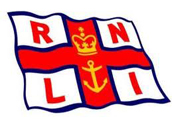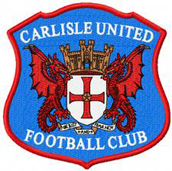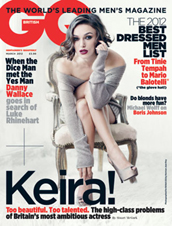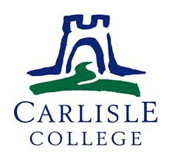- Home
- Scarrows
- Mariners
- Cumberland
- Miscellaneous
Warranty of a Horse. Scarrow v. M'Annally.
The Times, Tuesday Aug 31 1819 Cumberland Assizes, Carlisle, Friday Aug 27
Mr. TINDALL stated the pleadings. This was an action to recover damages for the sale of an unsound horse, the defendant having warranted him sound.
Mr. Sergeant HULLOCK opened the case to the Jury. The plaintiff was a respectable spirit-dealer in this town; the defendant, as his name implied, an Irish-man, and a horse-dealer. In August last year, the plaintiff bought a horse from the defendant, for which he gave a horse which he had formerly bought from him, and which he had complained of as unsound, at £43 and £19 to boot. The price was thus £62. It was found that the horse had a severe cold and cough. This the plaintiff hoped would soon be cured, and he kept the horse for that purpose. But when the cold was cured, the horse was found to be incurably lame. Mr. WILSON, a farrier of great experience and considerable character, saw him and pronounced him permanently unsound. The horse was turned to grass till Christmas, when the defendant again came to Carlisle, and was told that the horse was unsound. He first said that he had not warranted him; then, that he had not used the word warranty; next, that it had been a swap; and lastly, that the horse was not lame. He should now prove that there had been a warranty, and that the horse was lame, and known to the defendant to be so, when he sold him. The defendant had himself bought the horse at Boyle, in the July preceding, and a Mr. ROBINSON of this county had refused to buy up at that time, on account of his lameness, and told the defendant that he was lame. Nay, the defendant, after he had bought him, endeavoured to return him as unsound.
Mr. Isaac BOWS recollected being present with the parties on 15th August 1818, at the Lion and Lamb in this town. Mr. SCARROW mentioned to Mr. M'ANNALLY that he had had an unsound horse from him, and wished to return him. Mr. M'ANNALLY said that he had another horse in the stable that would suit him. The horse was taken out and mounted by Mr. SCARROW, who afterwards said he liked the horse very well if he was all sound and right. Mr. M'ANNALLY said he would warrant him as sound and good as any horse in England. In the plaintiff's counting-house they bargained at the price of £62. Mr. SCARROW had said before that he would not give a farthing for him if he was not warranted; and Mr. M'ANNALLY replied, that he warranted him as sound as any horse in England. When the bargain was made, Mr. SCARROW said, he hoped he had got a sound horse now. Mr. M'ANNALLY warranted him sound. Mr. M'ANNALLY agreed to take back the other horse at £43, and received £19 to boot. Witness saw M'ANNALLY in January last, when Mr. SCARROW said the horse was unsound and wished to get his money back. Mr. M'ANNALLY said he had not warranted him, and that said it had been a swap, and therefore that the horse could not be returned. As a reason for not returning the horse sooner, Mr. SCARROW said that he had not known where Mr. M'ANNALLY was to be found. Mr. M'ANNALLY was an Irish dealer in horses and cattle.
Cross-examined by Mr. RAINE. He swore that he thought the landlord of the Lion and Lamb did not know where Mr. M'ANNALLY was to be found. Mr. SCARROW tried the horse at leaping. The first sum required was £65 Mr. Thomas WILSON, a farrier for 7 years in Carlisle, looked at the horse at the plaintiff's desire on the 17th August, and rode him. He found him lame in the off fore-limb as he rode along Scotch-street. The lameness subsided before he got off him. The lameness was in the foot from contraction. He imagined it could not have been occasioned since the preceding 5th. He saw him several times since, always lame. In his judgment he was an unsound horse.
Cross-examined. Riding him severely in hunting would make no difference as to the contraction of the sinews: he saw him in November, and saw one of his knees damaged: they had not been so the first time he examined him.
Re-examined in chief. - It was the near fore knee; it was only scraped. Mr. Joseph HENRY, about a month after the horse was bought, rode out with Mr. SCARROW, and observed the off fore foot to be very lame. Mr. SCARROW had great difficulty in keeping the horse from falling; witness wished M'ANNALLY to get the matter settled: M'ANNALLY said he never warranted him at all, had never used the expression, and had only said he was a sound horse.
Cross-examined by Mr. POLLOCK. - He dared say the defendant was always to be heard of at the Lion and Lamb: he was a great dealer, and a very respectable man: he thought he stayed a few days after the 15th.
Re-examined in chief. - He had gone at Mr. SCARROW's desire to the Lion and Lamb, to inquire after the defendant, about a month after the 15th of August; and he was told they did not know when he would be over.
Mr. Joseph SAUL was in the Lion and Lamb with the parties in December last. The plaintiff said the horse was not sound according to contract, and returned him. The defendant said, if he was unsound he ought to have returned him before, and refused to return the money; the plaintiff said, he could not return him till he came to Carlisle. The defendant said, it had been a swap: the plaintiff said, it was not an exchange. The horse was now lame. James SCOTT rode the horse on the Brampton-road, and was afraid he would come down with him: he returned with him through the fields for the sake of the softer ground. He was still lame, and threatened to continue so. John BARNES, an inn-keeper, at the sign of the Lion and Lamb. - Mr. M'ANNALLY was at his house on the 27th of August, returning from Newcastle-fair: he did not see him after that time till near Christmas: he was there some days after the 27th. He did not know where the defendant lived, but it was near Antrim.
Cross-examined. - He had known M'ANNALLY for more than 7 years. Antrim was the post town. He remained in Carlisle about a fortnight after the 15th August, and was there constantly during that time. He saw the plaintiff and defendant drinking together in his house more than once between the 15th and 27th of August. It was about Martinmas (11th November) that the plaintiff applied to him for information respecting the defendant, in order to return the horse.
Re-examined in chief. - He did say some time this week that he could not recollect the time when the application was made; but he recollected since. Thomas FAWCETT saw his master riding the horse, a fine-looking horse, and thought him lame. Witness rode him out about a week after; he was dull; he had coughed, and had a cold. A month or 5 weeks after the cold began to go off. During the cold he always rode him at a walking pace, and took him out only for exercise. When cured of the cough and cold, he was cantered up the street, and was quite lame in the off either shoulder or foot. He had been shod on the Thursday before. The shoe was taken off, but the lameness had not been occasioned by the shoeing. He came down with plaintiff's father, on occasion of going to Scotby, three miles from Carlisle, and brushed one knee. It was about seven weeks after he was bought.
Cross-examined by Mr. RAINE. - He had over-cooped the mail at Brampton, when Mr. CLAYTON's leg was broken. James ROBINSON, a horse dealer, at Stanwix, in this county, knew the defendant, and had seen him at Boyle fair, in the north of Ireland, on the --- of July, 1818. There he saw the horse in question exposed to sale, and observed that he was lame. He was a good figure, and worth £50 in Ireland, if sound. Witness never offered for him, on account of his lameness. The defendant bought him that day. Witness said he had better have let him alone: defendant replied that witness knew nothing about it. Witness and defendant sent their horses from Boyle to Port-patrick. The defendant's nephew, who had been one of those sent with the horses, returned with this horse, and asked his uncle to return him as lame. Witness and defendant went to look for the man who had sold him, and not finding him, the defendant sent his nephew about 20 miles to return him. The price was £35. At Belfast he saw the nephew with the horse again, and heard him say that the man would not take him back. The horse was afterwards exposed to sale at the Newcastle fair. The defendant told him that he had sold the horse, and added, "You need not say much about him." The horse was now lame. He advised the defendant to settle this matter; but the defendant said he had not warranted him; he had only said he was sound.
Cross-examined. - He was sometimes a cock-fighter, and sometimes a horse-racer. At Annan he made his Golumpus lose the first heat, and won the second, and took in the flats. Mr. SCARROW, plaintiff's father, had walked the horse to Scotby. The horse tumbled down when walked nicely on.
Cross-examined. - The oldest son bought the horse. John SCARROW, plaintiff's brother, was in partnership with his brother, in the spirit way. This horse was bought by his brother for himself. Mr. RAINE. - I submit that the plaintiff must be non-suited, for in their amended declaration, they state this to have been an exchange, and it is in evidence that the plaintiff denied it to be an exchange.
Mr. Justice BAYLEY. - The law is, that if the horse was unsound when you sold him, you are answerable at least for the difference between his value as a sound and his value as an unsound horse. This was decided in STARKIE and FIELDER, before Lord LOUGHBOROUGH, when Chief-Justice of the Common Pleas, and uniformly acted upon since.
Mr. RAINE. - Then, gentlemen, I am disarmed, and it would be idle to waste your time with evidence upon this point. But the horse has been damaged, and this must operate in diminution of damages. It would be difficult to coat the hair over the knee so as to conceal the cut upon it.
Mr. Justice BAYLEY. - It is much better that your client should not be able to sell the horse again as a sound horse.
Mr. RAINE. - But the horse having been really damaged, and rendered of less value, the damages ought in consequence to be diminished.
Mr. Justice BAYLEY, in summing up, remarked, that the counsel for the defendant had very wisely conceded that the plaintiff was entitled to their verdict. There was a reason why the plaintiff should not be particularly spared, for he had distinctly known, and had it forced upon his attention, that the horse was unsound.
The Jury instantly returned a verdict for the plaintiff - Damages £62.








